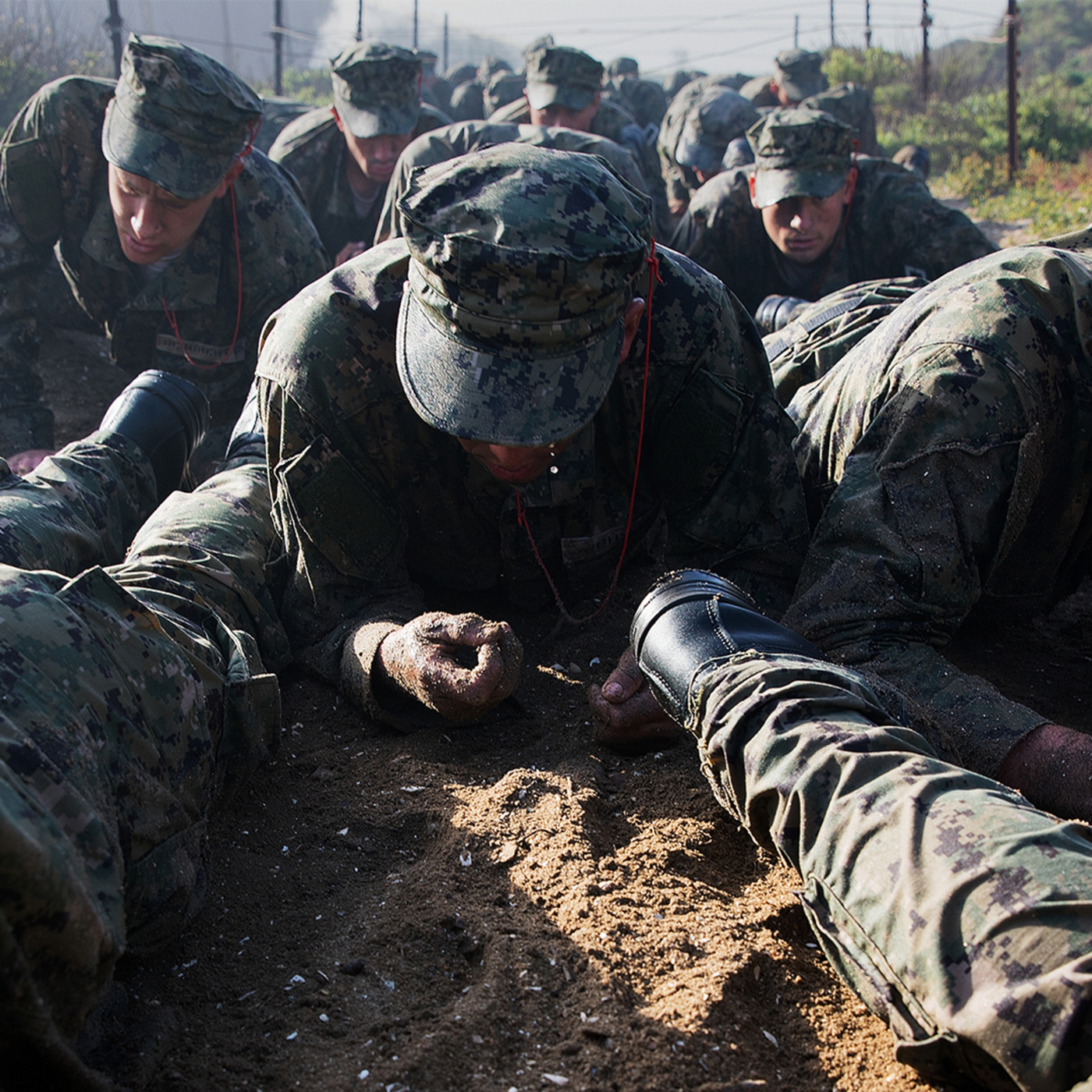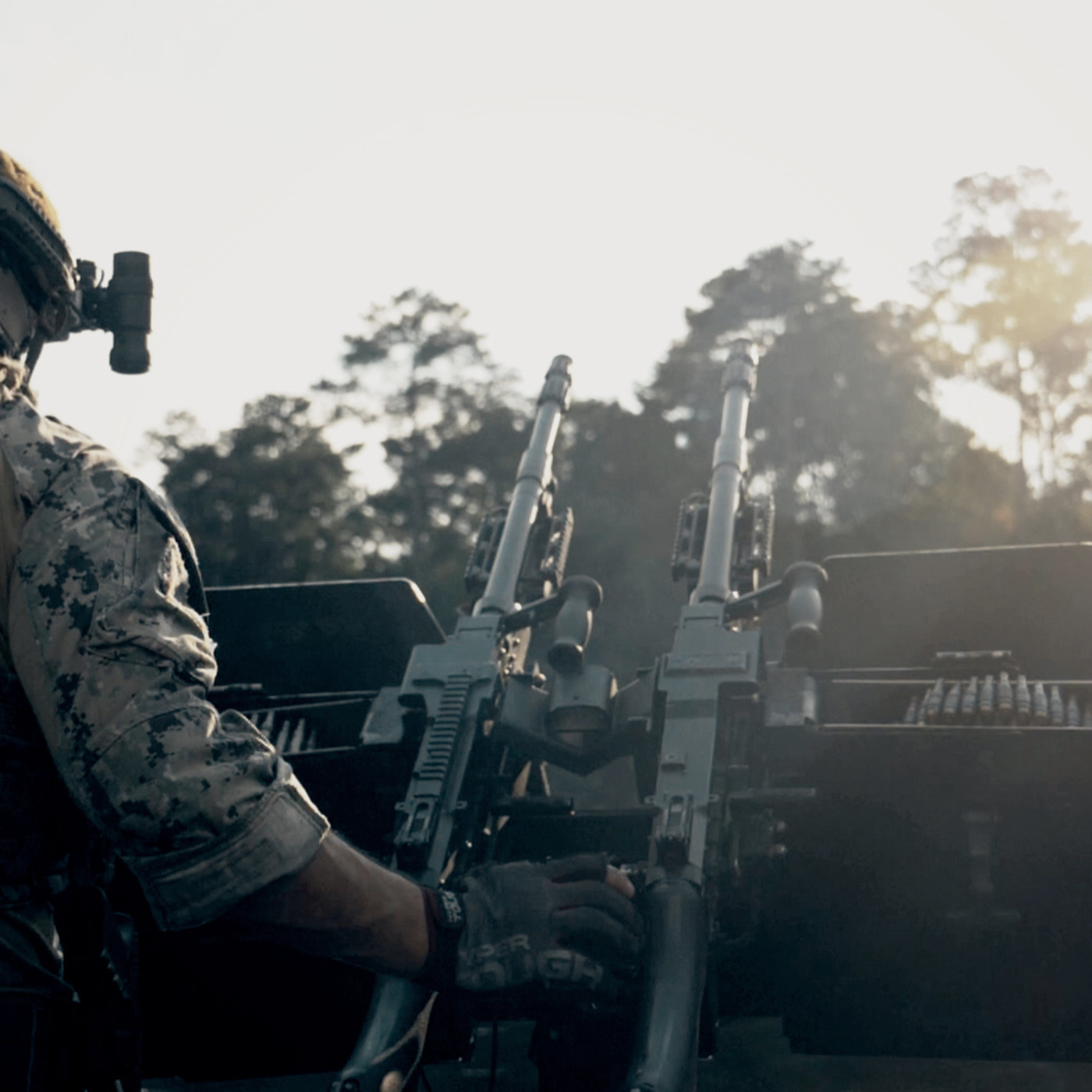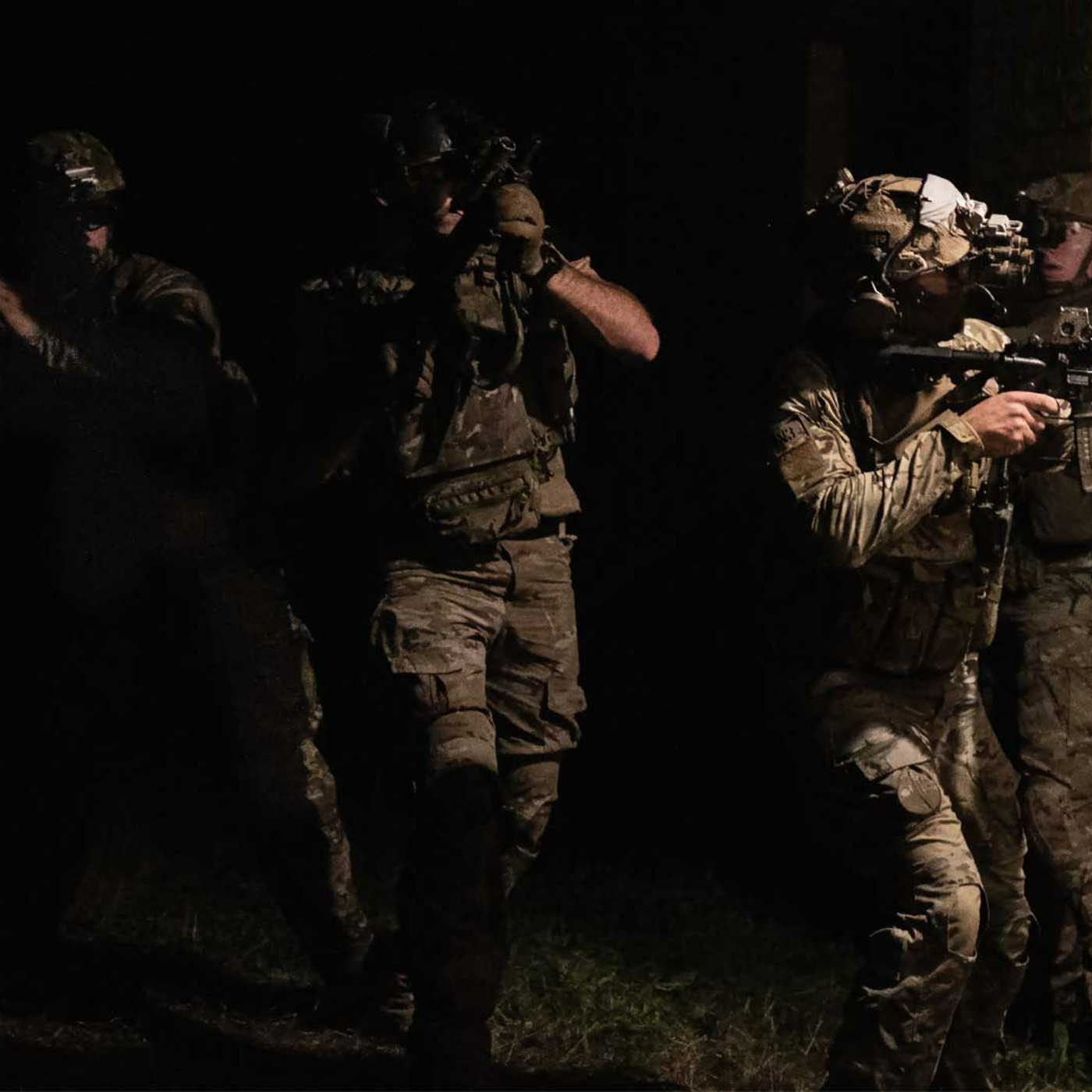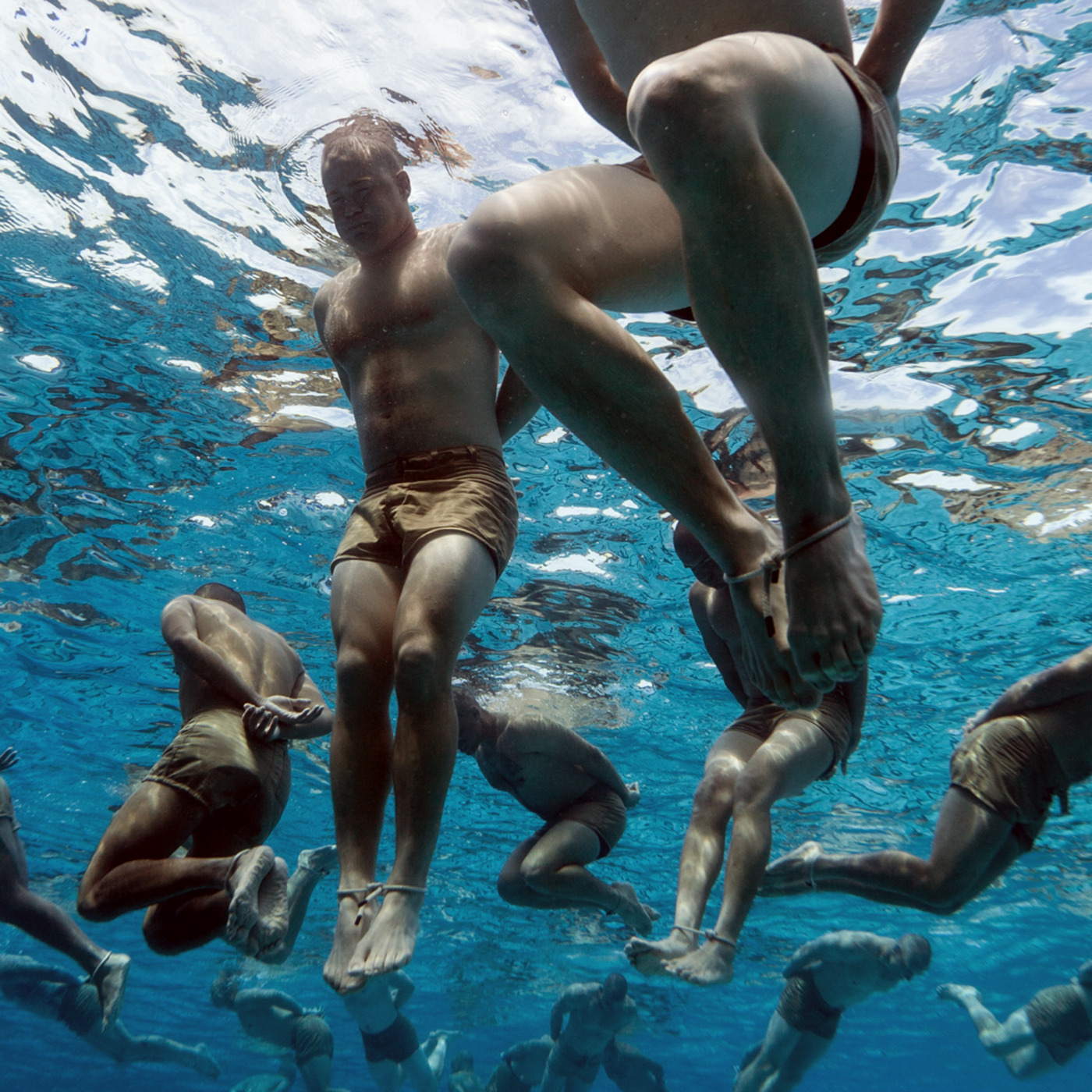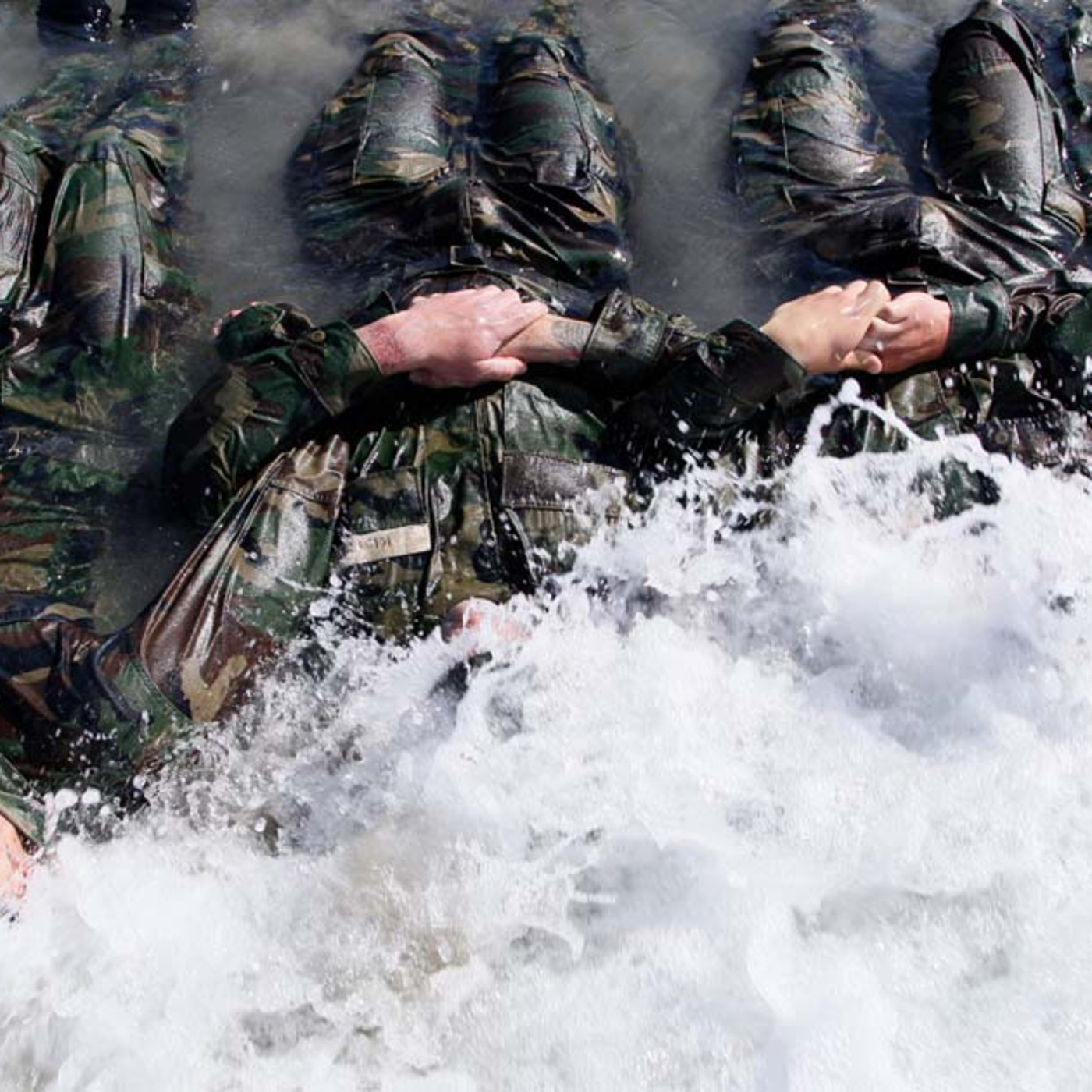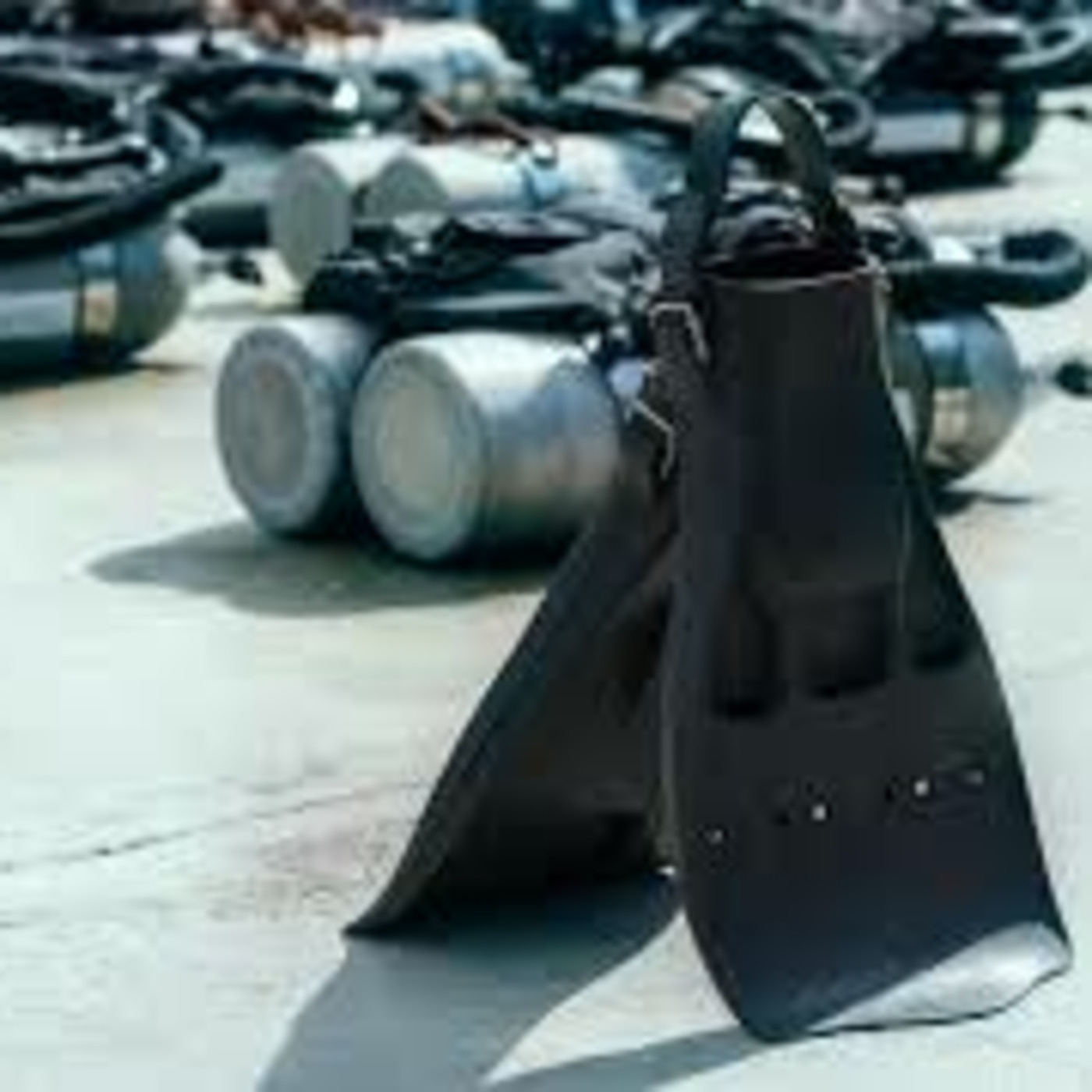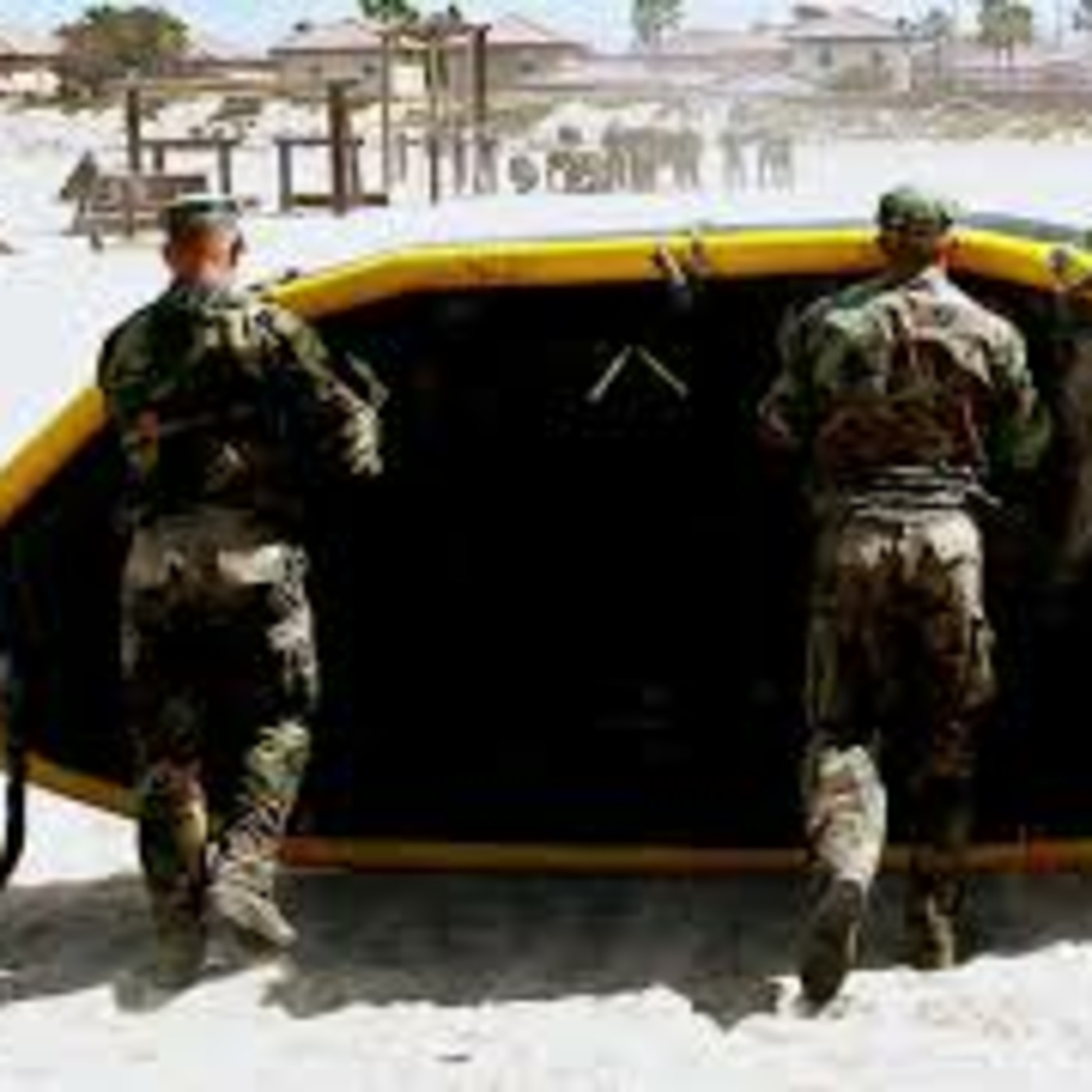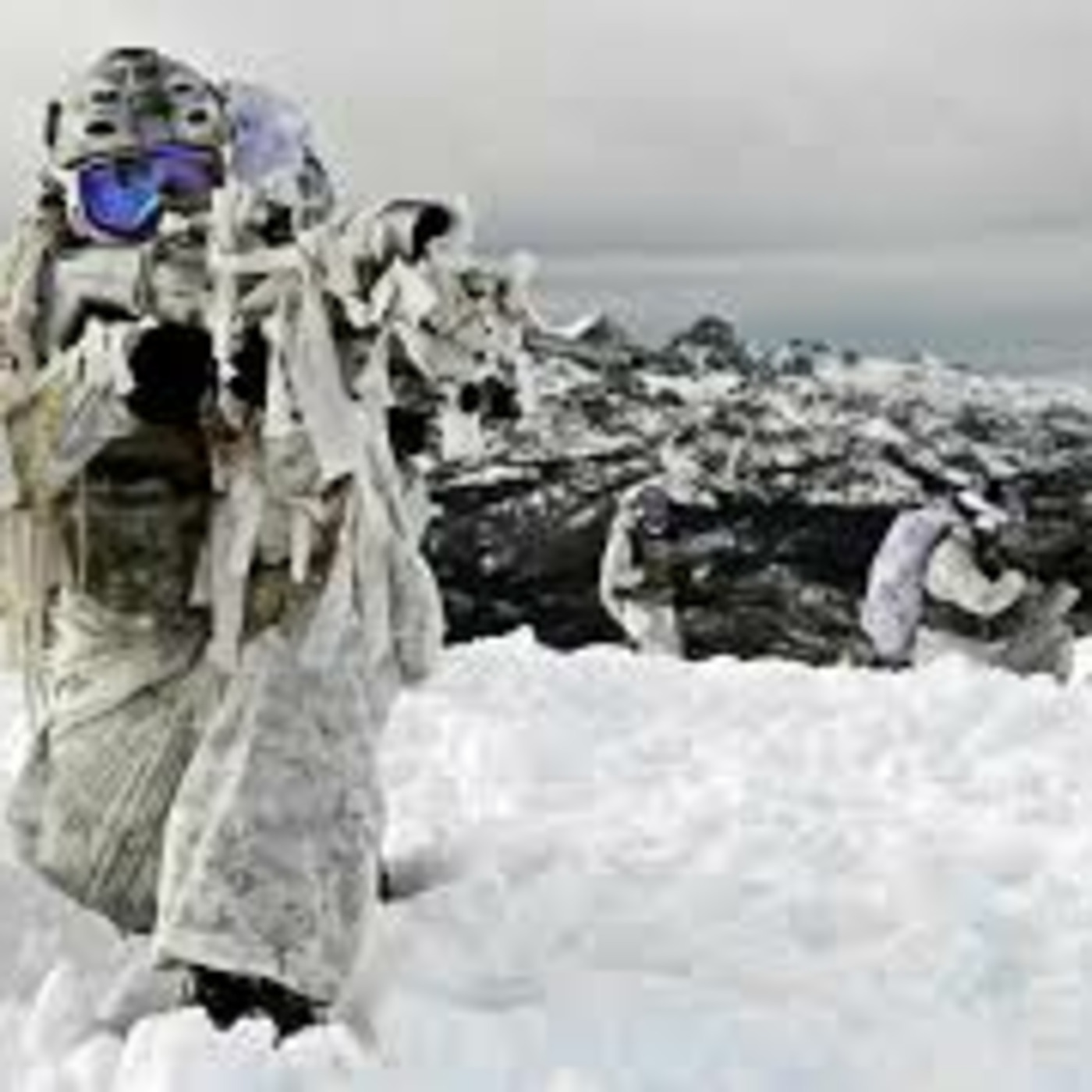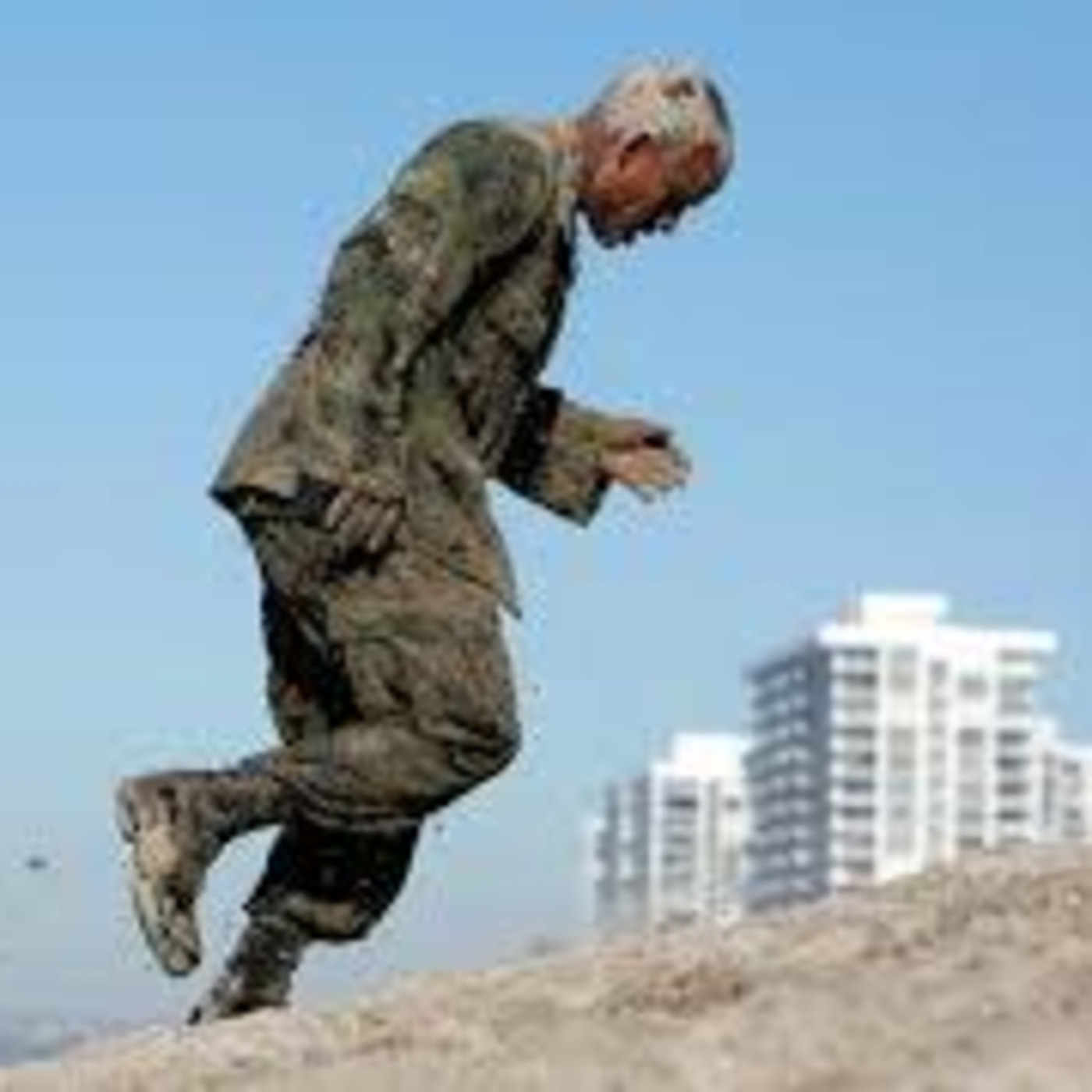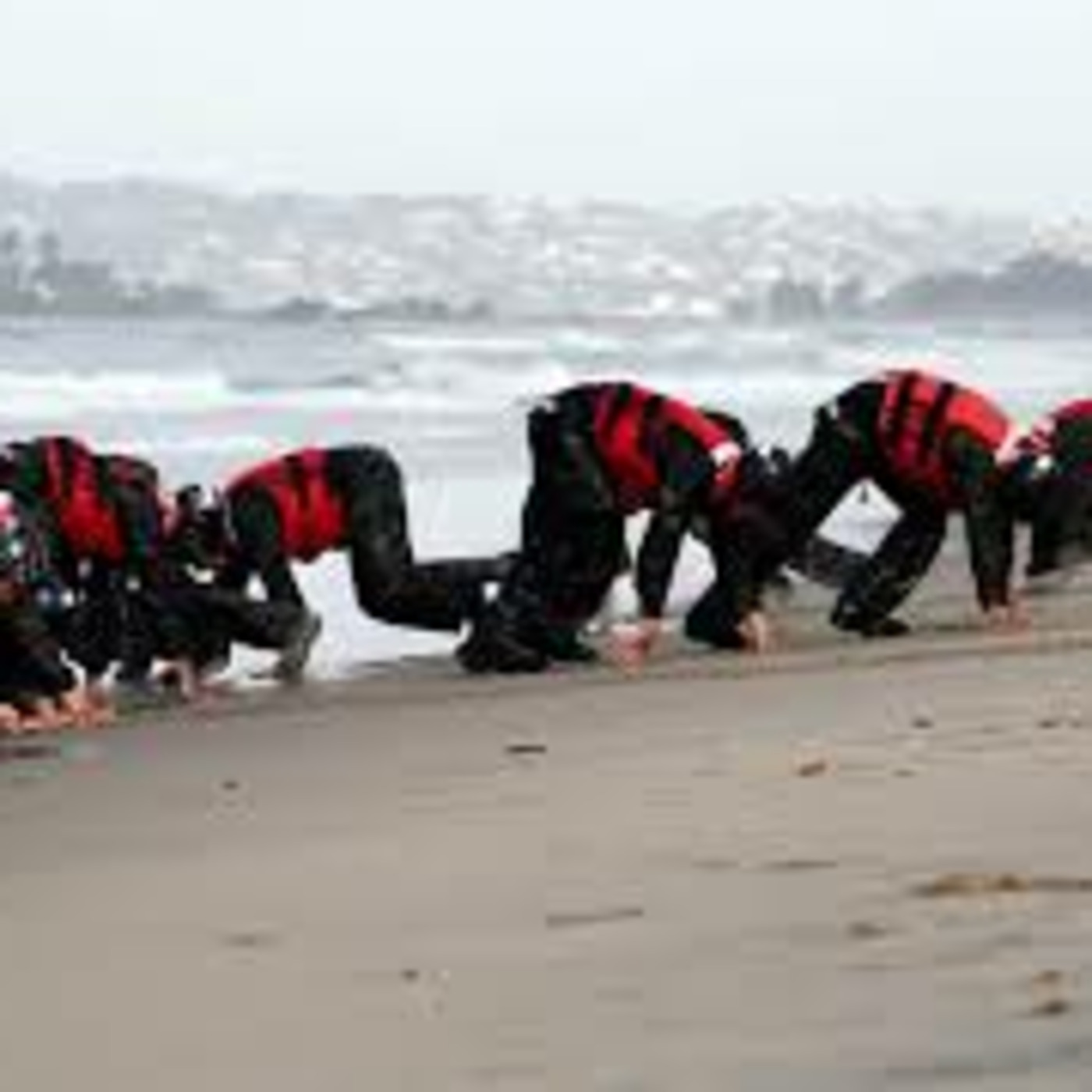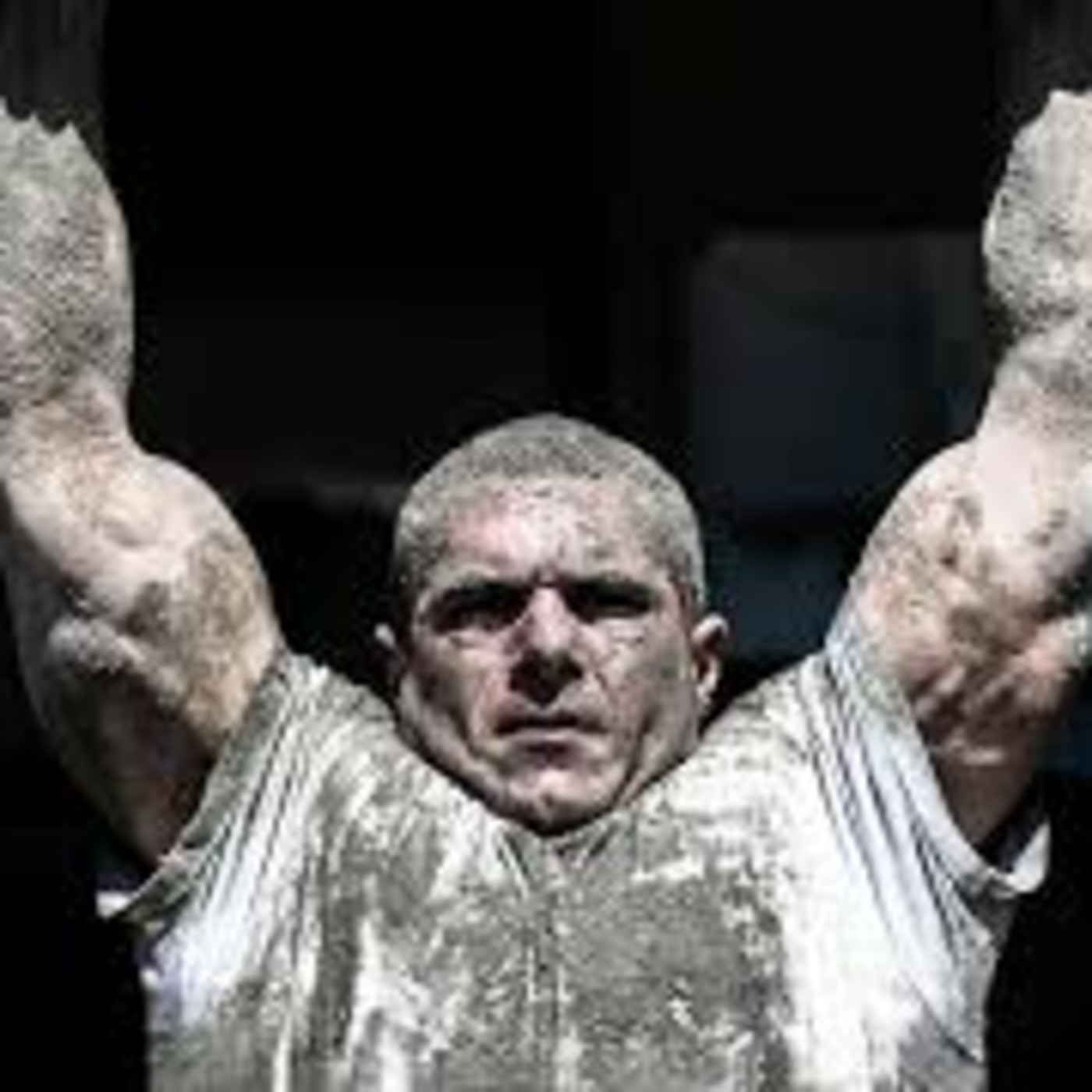22 Medal of Honor Recipient Britt Slabinski on Leadership Under Pressure
Update: 2019-02-22
Description
Command Master Chief (SEAL) Britt Slabinski, was awarded the nation's highest honor for his heroic action fighting the Taliban in Afghanistan.
00:22
On May 24, 2018 Navy SEAL Command Master Chief Britt Slabinski was invited to the White House and presented with the Medal of Honor. He was awarded the nation’s highest military honor for his actions in 2002 when he led his team on a daring rescue mission to save their teammate who was wounded behind enemy lines. In this episode, Command Master Chief Slabinski talks about the importance of team mentality when facing adversity and what service means to him.
00:56
DF: Thank you for sharing some of your time with us for one. That’s, that means a lot I think to have your perspective voice in on the podcast, so thank you for sharing some of your time with us to start with.
01:05
BS: Certainly, happy to be here.
01:06
DF: For people that might not know you, if you could just briefly introduce yourself and tell us your history with the Navy. I know it’s not brief but…
01:12
BS: Certainly, so I am Britt Slabinski. I am a retired Command Master Chief, served 26 years mostly all of that in the SEAL teams and mostly all East Coast teams. Went through with BUDS class 164, graduated with that in January 1990, and then served with SEAL Team Four for a few years and then served to, with Naval Special Warfare Development Group and served at group two as a Command Master Chief and then retired from Naval Special Warfare Command. In March of 2002, deployed to Afghanistan January 2002, but in March of that year, conducted an operation called Operation Anaconda, where I led a seven-man reconnaissance team onto a snow covered 11,000-foot mountain peak to conduct over-watch operations, reconnaissance operations. During that operation, one of my teammates, upon landing our helicopter landing on top of the mountain, we received heavy RPG, rocket propelled grenade fire, machine gun fire. Damaged the helicopter badly, and one of my teammates was ejected from the aircraft. Teammate’s name was Neil Roberts. So, my helicopter crash-landed in a valley, and I made the decision to launch an immediate rescue mission with my remaining team members back up to the mountain, up against superior numbers, heavily armed enemy force. And for those actions during that day, I was awarded the Medal of Honor.
02:52
DF: And I understand that just happened recently as far as receiving the award. Is that correct?
02:57
BS: I did. It happened May 24th at a ceremony, at the White House presented, presented to me not too long ago. (DF: Oh wow, so just, yeah not too long ago at all.) Yeah, not too long ago at all.
03:03
DF: That must have been pretty, that must have been a pretty amazing experience.
03:06
BS: It was. It’s still very surreal, and I don’t think surreal is the right word for it (DF: Yeah, right?), but it is still very, very surreal, amazing experience indeed, but…
03:17
DF: Yeah, yeah, tough to wrap your mind around I’m sure. So, let’s rewind back to joining the Navy. What or who inspired you to do that?
03:24
BS: So, I think like most youth, graduating from high school, I’m trying to figure out want do I want to do with my life, and from an early age on, I was involved in Boy Scouts. Boy Scouts was the kind of foundation of my life, and I became an Eagle Scout, and from what I learned in scouting, that really became the foundation of my life, Boy Scout oath, Boy Scout law, those things are what I made decisions from. They were vitally important to me growing up and still are to this day. My father was also a UDT guy, so he was in Naval Special Warfare really back in the early days. He went through one of the beginning classes of it, class 13 back in the (DF: Wow, that’s interesting) early 1950s (DF: Wow). So, when I was around 13, 14 years old, my dad took me to a SEAL reunion where he introduced me to some of his teammates. And from that moment on, I thought, “Wow, he’s introduced me to this other family that he had,” and I thought, “This looks like something very interesting that I want to do.” Very difficult job, difficult selection process for the job, but very crucial, important work on behalf of the nation. So, retiring from high school, I made the decision that I wanted to do something that was more important for me to do. I wanted to contribute. I wanted to serve my nation, and for me, that was joining the Navy and then applying to go to the SEAL program.
04:46
DF: Did you know what you wanted to do with the SEALs whenever you first joined? I know, at that point, there might not have been nearly as much media coverage about what the teams even did, but did you have an idea of kind of what you wanted to do with the Teams?
04:58
BS: I certainly did, because my dad introduced me to it. I’m from North Hampton, Massachusetts, so western Massachusetts, so as you can imagine there wasn’t a big presence (DF: Right) of military there, so I would not have known of the SEALs probably let alone even the Navy other than my father introducing me to it, so really happy to have this opportunity to get this message out to (DF: Yeah, other people in the same predicament, right.)…There are other people there and just to help them focus, “Hey, what do you want to do with your life.”
05:29
DF: Right, right, right, kind of set off on the right path. What did you do in the SEAL teams as your specialty?
05:36
BS: Coming through SEAL training, you’re trained in various different things. Maybe when you get to your SEAL team, everyone’s trained up in a lot of basic things. Everyone’s a combat diver, you do land warfare, you do parachute jumping, as the name fits: sea, air and land (DF: Right, right). You do all the specialties, all the special warfare tactics that go with that. Later on in my career, I specialized more in being sniper trainings, sniper instructor, but overall, the main thing that I’d say that I did is I was a leader first, first and foremost, above all the other specialties, I was, I was the leader, the one making decisions and executing those decisions.
06:13
DF: You mentioned being a sniper trainer. Is that what you said a second ago? Instructor? (BS: Instructor) Okay, that’s a place where the SEALs do get a lot of recognition. What separates the best Navy snipers from other precision rifle teams in the world?
06:28
BS: I don’t know if there’s a real distinction behind them. I think going to sniper school, there are a lot of great shooters, a lot of great rifle shooters. Most if not all SEALs I think are expert shooters, so everyone has a capability (DF: Right) to go through the sniper training. What you get out of that training, though, is you’re just going to think differently. You’re going to look at targets differently. You get planning on it, you get strategic thought processes, strategic in the sense that how you are going to go about going against a target, so in an operational sense, how am I going to go do this, and you get leadership skills out of it cause mostly the sniper guys, you’re solo in a lot of things, or you got one partner with you, and you’re going to go out and do certain operations. So, instead of having a larger team, you’re a much, much smaller team, so that’s really what you learn, how to operate across the whole battle space just you and your, and your shooting partner to accomplish a mission.
07:24
DF: Well, you did say that sometimes you’re solo. I mean I’ve obviously never been to sniper training or any precision rifle schools, but I think that is pretty common that there’s a team there, but the solo aspect I think is definitely a little bit different, you know….
07:38
BS: Certainly, you’re never really alone. In the team environment, you’re never really alone, and you have support. You have your teammates that are going to be close by but what you also learn at sniper school is a lot of times, it’s just you, and you have to rely on you and what you bring internally to that problem set, and sniper school really helped hone that down, to you’re the one making all those decisions, and that was invaluable to me.
08:05
DF: What’s something that you might have wished you knew before you entered the Navy? I think things have changed considerably since you entered the Navy. Does anything stick out in your mind?
08:14
BS: You know, with 20/20 hindsight looking back, I’m sure there’s any number of things I wish I would’ve known (DF: Right, right). At the moment, wherever I was, I was learning everything I possibly could. I was reading all the books, looking at everything, talking to everybody that I could possibly talk to about what I was getting into. So, at the moment, which, you know, was 30-something years ago, I felt I was as most prepared as I could. Of course, from what you see on the outside, and when you really get to the program, (DF: Yeah, things, things change, yeah) it, it usually is completely different, of course, cause there’s be a lot of hype and a lot of publicity to it, but when you get to actually, it’s like, “Whoa, this is totally different than what I thought that it was,” all, in a good way, of course, certainly much harder because then it all becomes, it all becomes just very real, and your commitment really takes more of a tangible form to, “Okay, here I am. Here’s a decision you made and you’re going forward with it.”
09:04
DF: Do you think that most SEALs have a calling for that kind of sense of purpose that you’re talking about people coming into whenever they arrive on the teams?
09:12
BS: I believe so because given the nature of the training, the training’s really intense. There’s some 75, 80% people that come into the training, all of them thinking they have what it takes, don’t get through for one reason or another, a
00:22
On May 24, 2018 Navy SEAL Command Master Chief Britt Slabinski was invited to the White House and presented with the Medal of Honor. He was awarded the nation’s highest military honor for his actions in 2002 when he led his team on a daring rescue mission to save their teammate who was wounded behind enemy lines. In this episode, Command Master Chief Slabinski talks about the importance of team mentality when facing adversity and what service means to him.
00:56
DF: Thank you for sharing some of your time with us for one. That’s, that means a lot I think to have your perspective voice in on the podcast, so thank you for sharing some of your time with us to start with.
01:05
BS: Certainly, happy to be here.
01:06
DF: For people that might not know you, if you could just briefly introduce yourself and tell us your history with the Navy. I know it’s not brief but…
01:12
BS: Certainly, so I am Britt Slabinski. I am a retired Command Master Chief, served 26 years mostly all of that in the SEAL teams and mostly all East Coast teams. Went through with BUDS class 164, graduated with that in January 1990, and then served with SEAL Team Four for a few years and then served to, with Naval Special Warfare Development Group and served at group two as a Command Master Chief and then retired from Naval Special Warfare Command. In March of 2002, deployed to Afghanistan January 2002, but in March of that year, conducted an operation called Operation Anaconda, where I led a seven-man reconnaissance team onto a snow covered 11,000-foot mountain peak to conduct over-watch operations, reconnaissance operations. During that operation, one of my teammates, upon landing our helicopter landing on top of the mountain, we received heavy RPG, rocket propelled grenade fire, machine gun fire. Damaged the helicopter badly, and one of my teammates was ejected from the aircraft. Teammate’s name was Neil Roberts. So, my helicopter crash-landed in a valley, and I made the decision to launch an immediate rescue mission with my remaining team members back up to the mountain, up against superior numbers, heavily armed enemy force. And for those actions during that day, I was awarded the Medal of Honor.
02:52
DF: And I understand that just happened recently as far as receiving the award. Is that correct?
02:57
BS: I did. It happened May 24th at a ceremony, at the White House presented, presented to me not too long ago. (DF: Oh wow, so just, yeah not too long ago at all.) Yeah, not too long ago at all.
03:03
DF: That must have been pretty, that must have been a pretty amazing experience.
03:06
BS: It was. It’s still very surreal, and I don’t think surreal is the right word for it (DF: Yeah, right?), but it is still very, very surreal, amazing experience indeed, but…
03:17
DF: Yeah, yeah, tough to wrap your mind around I’m sure. So, let’s rewind back to joining the Navy. What or who inspired you to do that?
03:24
BS: So, I think like most youth, graduating from high school, I’m trying to figure out want do I want to do with my life, and from an early age on, I was involved in Boy Scouts. Boy Scouts was the kind of foundation of my life, and I became an Eagle Scout, and from what I learned in scouting, that really became the foundation of my life, Boy Scout oath, Boy Scout law, those things are what I made decisions from. They were vitally important to me growing up and still are to this day. My father was also a UDT guy, so he was in Naval Special Warfare really back in the early days. He went through one of the beginning classes of it, class 13 back in the (DF: Wow, that’s interesting) early 1950s (DF: Wow). So, when I was around 13, 14 years old, my dad took me to a SEAL reunion where he introduced me to some of his teammates. And from that moment on, I thought, “Wow, he’s introduced me to this other family that he had,” and I thought, “This looks like something very interesting that I want to do.” Very difficult job, difficult selection process for the job, but very crucial, important work on behalf of the nation. So, retiring from high school, I made the decision that I wanted to do something that was more important for me to do. I wanted to contribute. I wanted to serve my nation, and for me, that was joining the Navy and then applying to go to the SEAL program.
04:46
DF: Did you know what you wanted to do with the SEALs whenever you first joined? I know, at that point, there might not have been nearly as much media coverage about what the teams even did, but did you have an idea of kind of what you wanted to do with the Teams?
04:58
BS: I certainly did, because my dad introduced me to it. I’m from North Hampton, Massachusetts, so western Massachusetts, so as you can imagine there wasn’t a big presence (DF: Right) of military there, so I would not have known of the SEALs probably let alone even the Navy other than my father introducing me to it, so really happy to have this opportunity to get this message out to (DF: Yeah, other people in the same predicament, right.)…There are other people there and just to help them focus, “Hey, what do you want to do with your life.”
05:29
DF: Right, right, right, kind of set off on the right path. What did you do in the SEAL teams as your specialty?
05:36
BS: Coming through SEAL training, you’re trained in various different things. Maybe when you get to your SEAL team, everyone’s trained up in a lot of basic things. Everyone’s a combat diver, you do land warfare, you do parachute jumping, as the name fits: sea, air and land (DF: Right, right). You do all the specialties, all the special warfare tactics that go with that. Later on in my career, I specialized more in being sniper trainings, sniper instructor, but overall, the main thing that I’d say that I did is I was a leader first, first and foremost, above all the other specialties, I was, I was the leader, the one making decisions and executing those decisions.
06:13
DF: You mentioned being a sniper trainer. Is that what you said a second ago? Instructor? (BS: Instructor) Okay, that’s a place where the SEALs do get a lot of recognition. What separates the best Navy snipers from other precision rifle teams in the world?
06:28
BS: I don’t know if there’s a real distinction behind them. I think going to sniper school, there are a lot of great shooters, a lot of great rifle shooters. Most if not all SEALs I think are expert shooters, so everyone has a capability (DF: Right) to go through the sniper training. What you get out of that training, though, is you’re just going to think differently. You’re going to look at targets differently. You get planning on it, you get strategic thought processes, strategic in the sense that how you are going to go about going against a target, so in an operational sense, how am I going to go do this, and you get leadership skills out of it cause mostly the sniper guys, you’re solo in a lot of things, or you got one partner with you, and you’re going to go out and do certain operations. So, instead of having a larger team, you’re a much, much smaller team, so that’s really what you learn, how to operate across the whole battle space just you and your, and your shooting partner to accomplish a mission.
07:24
DF: Well, you did say that sometimes you’re solo. I mean I’ve obviously never been to sniper training or any precision rifle schools, but I think that is pretty common that there’s a team there, but the solo aspect I think is definitely a little bit different, you know….
07:38
BS: Certainly, you’re never really alone. In the team environment, you’re never really alone, and you have support. You have your teammates that are going to be close by but what you also learn at sniper school is a lot of times, it’s just you, and you have to rely on you and what you bring internally to that problem set, and sniper school really helped hone that down, to you’re the one making all those decisions, and that was invaluable to me.
08:05
DF: What’s something that you might have wished you knew before you entered the Navy? I think things have changed considerably since you entered the Navy. Does anything stick out in your mind?
08:14
BS: You know, with 20/20 hindsight looking back, I’m sure there’s any number of things I wish I would’ve known (DF: Right, right). At the moment, wherever I was, I was learning everything I possibly could. I was reading all the books, looking at everything, talking to everybody that I could possibly talk to about what I was getting into. So, at the moment, which, you know, was 30-something years ago, I felt I was as most prepared as I could. Of course, from what you see on the outside, and when you really get to the program, (DF: Yeah, things, things change, yeah) it, it usually is completely different, of course, cause there’s be a lot of hype and a lot of publicity to it, but when you get to actually, it’s like, “Whoa, this is totally different than what I thought that it was,” all, in a good way, of course, certainly much harder because then it all becomes, it all becomes just very real, and your commitment really takes more of a tangible form to, “Okay, here I am. Here’s a decision you made and you’re going forward with it.”
09:04
DF: Do you think that most SEALs have a calling for that kind of sense of purpose that you’re talking about people coming into whenever they arrive on the teams?
09:12
BS: I believe so because given the nature of the training, the training’s really intense. There’s some 75, 80% people that come into the training, all of them thinking they have what it takes, don’t get through for one reason or another, a
Comments
Top Podcasts
The Best New Comedy Podcast Right Now – June 2024The Best News Podcast Right Now – June 2024The Best New Business Podcast Right Now – June 2024The Best New Sports Podcast Right Now – June 2024The Best New True Crime Podcast Right Now – June 2024The Best New Joe Rogan Experience Podcast Right Now – June 20The Best New Dan Bongino Show Podcast Right Now – June 20The Best New Mark Levin Podcast – June 2024
In Channel


